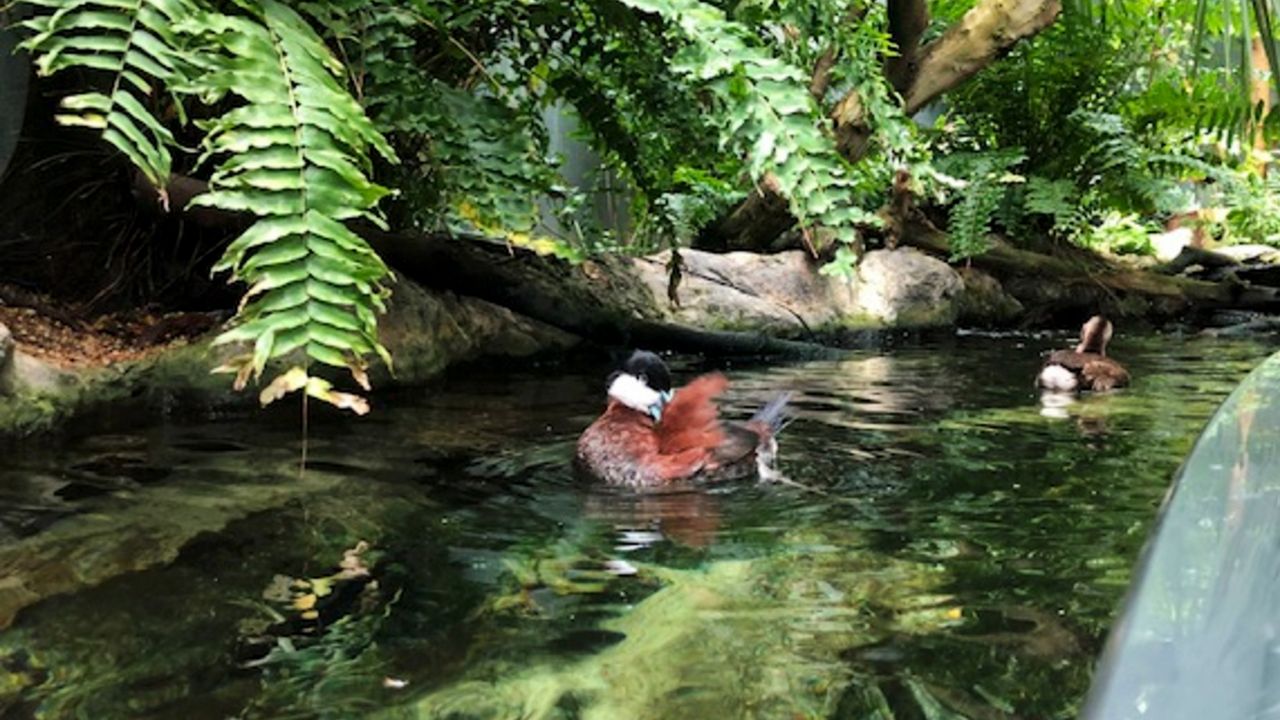MDC warns against dumping fish in waterways - News-Press Now
MDC warns against dumping fish in waterways - News-Press Now |
| MDC warns against dumping fish in waterways - News-Press Now Posted: 21 Jun 2020 01:00 AM PDT  The Missouri Department of Conservation is encouraging residents to not dump aquarium fish species that are used as pets into the state's waterways. Department staff recently caught 10 large, non-native koi fish while sampling for native fish at Sugar Creek Conservation Area in Northeast Missouri. Of the total 20 native species found during sampling, all were under size and lower in numbers than expected. The pond is managed by the department for bluegill and bass fishing. DJ Loken, fisheries biologist in Kirksville, said this indicates that the koi fish normally housed in water gardens have stunted the population and sizes of native fish due to the fact that they feed on the same food source as the young fish. "In a pond like that, we should have seen around 40 bass and 100 bluegill but we had 20 combined," Loken said. "The koi fish are more aggressive and they need more food than the young bluegill do. They were outcompeting the native species for food." He said the conservation department has received numerous reports across the state of people pouring the contents of aquariums used for pet species and tropical fish into public waterways. Department staff learned of a blue African cichlid caught from a lake near Moberly, Missouri. There have also been cases of South American catfish, Chinese mystery snails and a red-tailed shark being found across the state. He said it is illegal to dump invasive fish and native fish into rivers, lakes and reservoirs without MDC approval. "Residents cannot dump any species into a public body of water or waters of the state without approval," Loken said. "That is how we try to manage what goes into a pond and what goes into a lake to avoid damage to a natural fishery. The introduction of a fish species can completely change a pond." He said the dumping of popular game fish can also harm a waterway. "A common example we see is if an angler catches a flathead catfish on the river and then puts it in a pond, that can damage it," Loken said. "There are many factors that go into stocking a waterway." Loken said those that dump the fish often view their action as a kind and quick solution to unforeseen fish-care problems. However, the introduction of invasive species can disrupt the ecosystem by creating changes that native wildlife are not able to combat. He said even though the nearest pond, lake or river is not a viable alternative for domestic fish, there are other options. In many cases, a pet store will take back a problem fish or owners can advertise the availability of the fish to other people. In addition, pet owners could consider a local aquarium club. The members often look to buy, sell, trade or and give away fish and aquarium products. He said there are also concerns that disease could be spread from one species to another. For example, African clawed frogs are popular aquarium pets that can carry the Chytrid fungus. This can be fatal to hellbenders, which is a Missouri amphibian that is listed as state endangered. "These species could carry something that would be normal in their native environment but isn't found here," Loken said. "Even when fish are brought in from another state, bio-security becomes top priority." Loken said when the contents of an aquarium are transferred to the nearest pond or stream, exotic aquatic fish species aren't the only concern. A once-popular aquarium plant named hydrilla has been found in several ponds in Greene County. In other states where hydrilla has become established, the plant has interfered with the operation of recreational boat motors and clog municipal water intake devices for nearby communities. Before purchasing a fish, buyers are asked to consider how big the fish will eventually become, the cost of properly housing and maintaining the fish and compatibility of new fish with other species in the tank. |
| Social Distance with Sea Creatures at Florida Aquarium - Bay News 9 Posted: 18 Jun 2020 02:00 AM PDT  TAMPA, Fla. — The Florida Aquarium in Tampa's doors are open again, with some new rules. Here's what you should know about the attractions new precautions before you visit: 1. The Florida Aquarium located in Tampa Bay is open to the public with social distancing and safety measures in place to protect guests and animals. 2. The Aquarium officially opened back up several weeks ago, requiring guests to wear masks and make reservations online ahead of time. In addition, they are providing a one-way walking experience through the entire aquarium. 3. While they haven't opened all of their experiences back up yet, you can walk through the entirety of the aquarium. The touch tanks, including the sting ray touch tank, are open. 4. The aquarium is open seven days a week from 9:30 a.m. to 5 p.m. 5. For more information, check out the aquarium's website. |
| You are subscribed to email updates from "aquarium tank online" - Google News. To stop receiving these emails, you may unsubscribe now. | Email delivery powered by Google |
| Google, 1600 Amphitheatre Parkway, Mountain View, CA 94043, United States | |
Comments
Post a Comment